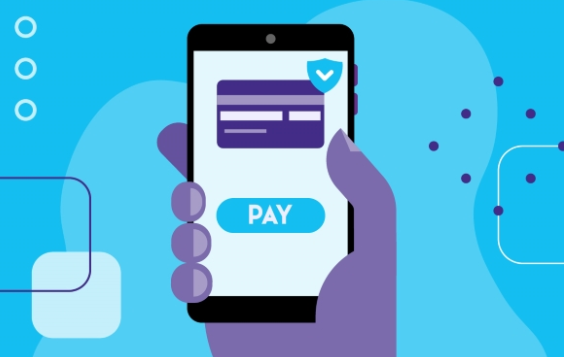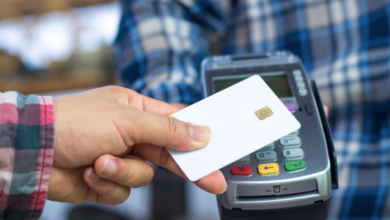Credit Card Payment Processing

Credit Card Payment Processing – Credit card payment processing is the system that enables businesses to accept credit card payments from their customers. By facilitating easy, secure transactions, credit card processing broadens the range of payment options available to customers and increases sales.
Credit card processing is the complex system that allows businesses to accept credit card payments from their customers. It involves a number of different parties, including the merchant, the customer, the credit card network, the issuing bank, and the acquiring bank.
Credit Card Processing: Everything You Need to Know

Credit card processing is the system that allows businesses to accept credit card payments from their customers. It involves a number of different steps, including:
- The customer swipes their credit card at a point-of-sale (POS) terminal.
- The POS terminal sends the customer’s credit card information to a payment processor.
- The payment processor sends the credit card information to the card network (e.g., Visa, Mastercard, American Express).
- The card network sends the credit card information to the issuing bank.
- The issuing bank approves or declines the transaction.
- The card network sends the approval or decline decision back to the payment processor.
- The payment processor sends the approval or decline decision back to the POS terminal.
- The POS terminal prints a receipt for the customer.
If the transaction is approved, the funds are transferred from the customer’s credit card account to the merchant’s bank account. This process typically takes a few days.
The different parties involved in credit card processing
- The merchant is the business that is selling goods or services to the customer.
- The customer is the person who is purchasing goods or services from the merchant.
- The credit card network is the organization that facilitates the communication between the merchant’s payment processor and the customer’s issuing bank. Visa, Mastercard, American Express, and Discover are the four major credit card networks.
- The issuing bank is the bank that issued the credit card to the customer.
- The acquiring bank is the bank that has a relationship with the merchant and that processes the merchant’s credit card payments.
How does Credit Card Payment Processing work?
The credit card payment processing system consists of several key players:
- The merchant: The business that is selling goods or services and accepting credit card payments.
- The customer: The individual who is purchasing goods or services from the merchant and using a credit card to pay for them.
- The credit card network: The organization that facilitates the communication and processing of credit card transactions. Visa, Mastercard, American Express, and Discover are the four major credit card networks.
- The issuing bank: The financial institution that issued the credit card to the customer.
- The acquiring bank: The financial institution that has a relationship with the merchant and allows them to accept credit card payments.
- The payment processor: The company that provides the technology and services necessary to process credit card transactions.
The Benefits of Credit Card Processing
There are a number of benefits to accepting credit card payments, including:
Benefits for merchants
- Increased sales: By accepting credit cards, merchants can broaden the range of payment options available to their customers and increase sales.
- Improved customer convenience: Customers appreciate the convenience of being able to pay for goods or services with a credit card.
- Reduced fraud: Credit card payments are more secure than cash or check payments, which can help to reduce fraud.
- Increased efficiency: Credit card payment processing can help to improve the efficiency of a merchant’s operations.
Benefits for customers
- Convenience: Credit cards are a convenient way to pay for goods or services.
- Security: Credit card payments are more secure than cash or check payments.
- Rewards: Many credit cards offer rewards programs that can earn customers points, miles, or cash back on their purchases.
- Purchase protection: Many credit cards offer purchase protection that can help customers to get their money back if they are not satisfied with their purchase.
The Costs of Credit Card Processing
There are a number of costs associated with credit card processing, including:
- Interchange fees: These are fees that are charged by the card networks to the merchant’s bank.
- Processing fees: These are fees that are charged by the payment processor to the merchant.
- Equipment costs: Merchants may need to purchase POS terminals and other equipment to accept credit card payments.
The risks of credit card payment processing
There are also some risks associated with credit card payment processing.
Risks for merchants
- Fraud: Merchants can be the target of credit card fraud, which can result in lost revenue.
- Chargebacks: Merchants can be charged back for credit card transactions that are disputed or reversed.
- Processing fees: Merchants pay processing fees for each credit card transaction they accept.
Risks for customers
- Fraud: Customers can be the target of credit card fraud, which can result in identity theft or financial loss.
- Interest charges: Customers who carry a balance on their credit cards can be charged interest.
- Late fees: Customers who make late payments on their credit cards can be charged late fees.
How to Choose a Credit Card Processor
When choosing a credit card processor, there are a number of factors to consider, including:
- The cost of processing fees.
- The features and functionality offered by the processor.
- The level of customer support offered by the processor.
The Future of Credit Card Processing
The future of credit card processing is likely to be characterized by a number of trends, including:
- The growth of e-commerce: More and more people are shopping online, which is driving the demand for online credit card processing.
- The rise of mobile payments: Mobile payments are becoming increasingly popular, which is driving the demand for mobile credit card processing.
- The adoption of new technologies: New technologies, such as tokenization and EMV, are being adopted to improve the security of credit card processing.
These trends are likely to make credit card payments even more convenient and secure for customers.




